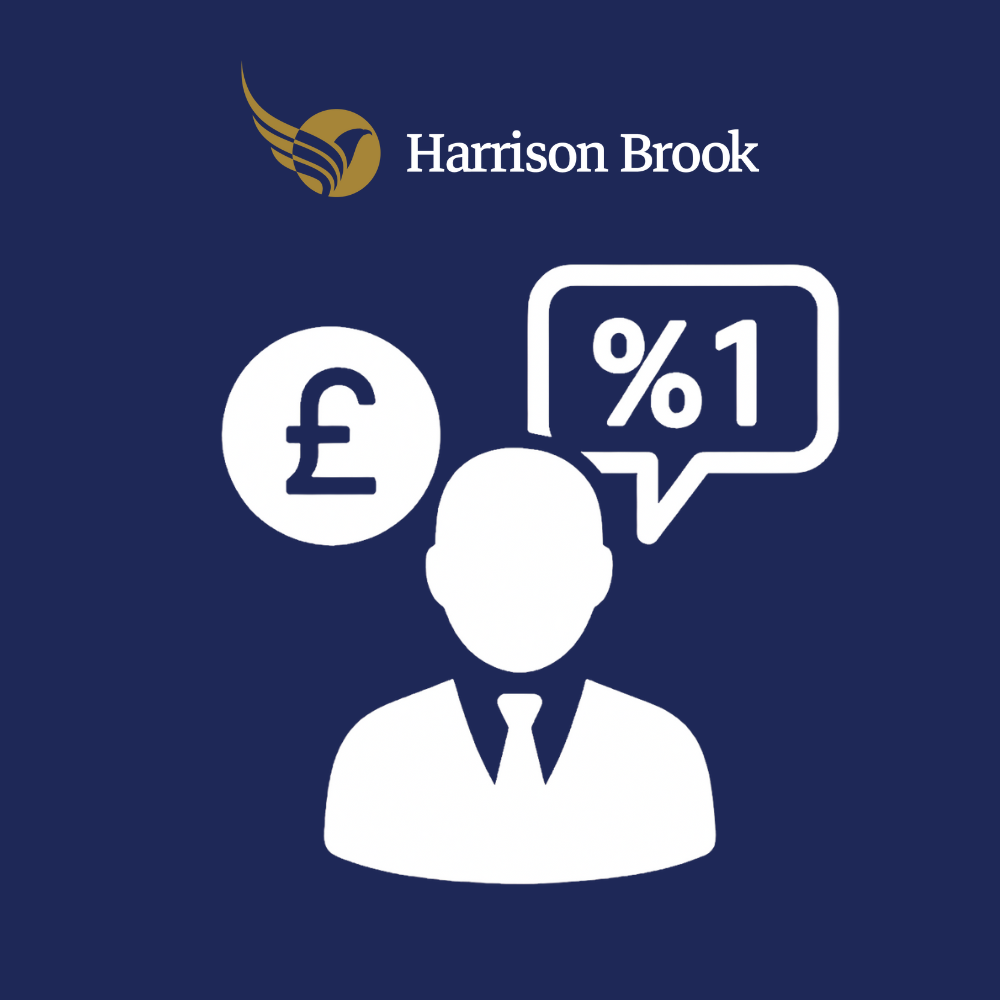
When it comes to investing or managing your retirement savings, one of the most common questions people ask is: “Is it worth paying 1% to a financial adviser?” At first glance, a 1% annual fee may sound high. Yet when you understand what you receive in return—expertise, tailored strategies, and long-term value—it often represents good value for money.
Financial advisers provide a range of services, including investment advice, retirement planning, tax advice, and managing investments. They also help clients understand and choose from a wide range of financial products, ensuring recommendations are tailored to individual needs and goals.
When it comes to retirement planning, advisers consider all sources of income, including the state pension, and help clients plan how to supplement or replace it to achieve their desired retirement income.
Introduction to Financial Services
Financial services play a vital role in helping individuals and families manage their money, plan for the future, and achieve their financial goals. At the core of these services are financial advisers—qualified professionals who offer expert advice tailored to your unique financial situation. Whether you’re looking for one off financial advice to address a specific question, or ongoing financial advice to guide you through life’s changes, a financial adviser can provide the support you need.
Financial advisers assist with a wide range of personal finance matters, including investment advice, retirement planning, tax advice, and managing investments. They can help you develop a retirement strategy, make the most of your pension pot, and navigate complex issues such as defined benefit pensions or final salary pensions. By understanding your financial circumstances and long-term objectives, a financial professional can recommend strategies to save money, optimise your tax position, and avoid costly mistakes.
Whether you’re planning for retirement, managing a windfall, or simply looking to get your finances on the right track, seeking advice from a financial adviser can make a significant difference. Their expertise ensures that your financial planning is robust, your investments are well-managed, and your tax planning is efficient, helping you build a secure financial future.
What does a 1% adviser fee actually cover?
A 1% adviser fee is usually charged on the total value of your investments each year. For example, if you have £250,000 invested, you would typically pay around £2,500 per year. This fee is typically charged for each time period—such as annually—during which the adviser provides ongoing services.
That cost covers far more than just investment selection. It includes:
- Ongoing financial planning: Regular reviews of your goals, tax position, and income needs, along with ongoing financial advice to help you adapt to life changes.
- Portfolio management: Managing investments and rebalancing them to match your risk profile and adapt to market conditions.
- Tax efficiency: Advisers structure portfolios to minimise capital gains and income tax exposure.
- Retirement planning: Building a sustainable withdrawal strategy that lasts throughout retirement.
- Behavioural coaching: Preventing emotional decision-making during market volatility—a factor proven to protect returns over time.
When done properly, advice goes well beyond numbers. It helps you make confident financial decisions and avoid costly mistakes.
How do financial advisers justify their fees?
Good advisers justify their 1% fee through tangible value creation. Independent research consistently shows that professional advice can improve long-term outcomes. A Vanguard study found that financial advisers can add approximately 3% in net returns per year to investment performance, primarily through portfolio discipline, asset allocation, and behavioural coaching.
That means the 1% fee is often more than offset by improved investment performance, smarter tax planning, and better-timed decisions.
Beyond performance, there is also peace of mind. Knowing that someone is watching over your finances, ensuring compliance, and adjusting to changes in legislation or markets is invaluable—especially for expats managing assets across borders. This is why many investors choose to seek advice from a professional adviser.
Is 1% a reasonable fee to pay a financial adviser?
In the UK, the average ongoing adviser fee typically ranges between 0.75% and 1%, depending on the size of your portfolio and the complexity of your situation. According to industry research, the average fees charged by financial advisers can help you benchmark what to expect and compare different services. For smaller portfolios, fees can be slightly higher. For larger accounts, they often decrease marginally as a percentage.
When you work with a transparent, fee-based adviser who avoids hidden commissions, a 1% fee can represent fair value. Regulations now ban advisers from receiving commissions from a product provider, ensuring that recommendations are unbiased. The key is that your adviser should be an independent financial adviser and provide unrestricted access to global investment options, rather than limiting you to in-house funds.
How much value should I expect from a 1% fee?
To evaluate whether a 1% fee is “worth it,” consider what you gain in return:
| Area of Value | Description |
|---|---|
| Performance discipline | Avoiding panic selling, over-trading, or chasing returns. |
| Tax optimisation | Using ISAs, pensions, or international structures such as an Assurance Vie or International SIPP. |
| Financial structure | Coordinating pensions, savings, and investments under one strategy, with personal recommendations tailored to your unique situation. |
| Retirement strategy | Developing a comprehensive plan for retirement, including saving goals and investment planning to ensure a sustainable withdrawal strategy. Advisers can also help you evaluate options like annuities that provide guaranteed income in retirement. |
| Access to professionals | Working with tax advisers, lawyers, and compliance specialists through your adviser’s network, who provide personal recommendations based on your financial goals. |
Each of these factors can make a significant long-term difference, especially when living or retiring abroad.
What happens if you do not use an adviser?
Without professional guidance, investors often:
- Miss out on key tax allowances or overpay in tax.
- Hold inappropriate investments for their risk level.
- Time markets incorrectly or sell in downturns.
- Lack a cohesive financial plan.
Over decades, these mistakes can cost far more than a 1% annual fee. A well-structured plan can help you protect and grow your wealth steadily, avoid costly mistakes, and save money, not just chase performance.
Free guidance options: What can you get for nothing?
When it comes to managing your personal finances, there are several sources of free financial guidance that can help you get started, without any cost. Organizations such as Money Wellness, National Debtline, and Citizens Advice provide free advice on debt management, including support with debt management plans and debt relief orders. If you’re over 50, Age UK offers free benefits checks and assistance with benefit applications, helping you make the most of your entitlements.
For those approaching retirement, Pension Wise from Money Helper delivers free pensions guidance, explaining your pension options and helping you understand your choices. While these services offer valuable information and can help you make more informed decisions about your money, it’s important to remember that free guidance is not the same as tailored advice from a financial adviser. Free guidance tends to be general and may not take your unique financial situation into account.
If your finances are straightforward, these resources can be a great starting point. However, for more complex needs, such as retirement planning, managing a pension pot, or navigating tax issues, seeking professional advice from a financial adviser is often the best way to avoid costly mistakes and ensure your plan is truly tailored to your goals.
Is it better to have a fee-only financial adviser?
Yes, particularly if transparency is important to you. Fee-only advisers charge a clear, agreed percentage rather than earning commissions from products. This structure aligns their interests with yours—they succeed when you do, and often offer lower fees compared to commission-based models. Some advisers also provide fixed fees for specific projects or services, giving you clarity and certainty about costs.
Independent advisers such as Harrison Brook operate on a transparent, fee-based model. That means no hidden costs, no product bias, and total flexibility to invest globally.
Is 1% too high for larger portfolios?
For very large portfolios, say, over £1 million, many firms offer tiered pricing, where fees reduce on higher portions of your assets. However, as your portfolio grows, a percentage-based fee grows accordingly, meaning the total fee increases as your assets increase. Yet even at that level, a 1% structure remains competitive if it includes full wealth management, ongoing reviews, tax planning, and access to regulated platforms.
Remember that what truly matters is net return after fees. A skilled adviser who manages your investments on an ongoing basis and achieves a better long-term outcome, even with slightly higher charges, can still deliver more value.
Pension Planning: Is specialist advice worth the cost?
Pension planning is one of the most important aspects of financial planning, especially as you approach retirement or consider whether you can afford to retire early. The decisions you make about your pension pot can have a lasting impact on your income and quality of life in retirement. This is where specialist advice from a financial adviser can be invaluable.
A financial adviser will take the time to understand your financial circumstances, assess your retirement goals, and provide tailored advice on the best way to manage your pensions. This includes guidance on complex issues such as defined benefit pensions, final salary pensions, and the tax implications of different pension options. With professional advice, you can avoid costly mistakes, such as triggering unnecessary tax charges or making irreversible decisions that could reduce your retirement income.
While the cost of ongoing advice typically ranges from 0.5% to 1% of your assets each year, many find that the benefits far outweigh the fees. A good adviser will help you maximise your pension pot, ensure your retirement strategy is aligned with your financial goals, and provide ongoing support as your circumstances change. This is especially important for those who are self employed, have variable disposable income, or need to make complex decisions about when and how to access their pension.
Ultimately, investing in specialist pension advice can help you stay on the right track, make informed choices, and secure a stable financial future. Whether you need a one-off review or ongoing support, a financial adviser can provide the clarity and confidence you need to plan your retirement with peace of mind.
What is a red flag for financial advisers?
When choosing an adviser, watch out for warning signs such as:
- Lack of fee transparency, including how the adviser is paid (fee-based, commission, or a combination) and which fees apply to the services provided.
- Pressure to invest in in-house or “exclusive” products.
- No clear explanation of risk levels or performance benchmarks.
- Unwillingness to provide regulated documentation.
A good adviser will explain exactly what you are paying for, clarify how they are paid, and specify when fees apply, showing how your plan aligns with your financial goals.
FAQs – Is it worth to pay 1% to a financial adviser?
Is a 1% management fee acceptable for financial advisers? Yes. A 1% ongoing management fee is standard for comprehensive financial advice, covering investment management, tax planning, and client support. When considering the overall financial advice cost, it’s important to compare different fee structures and understand what is included in the service.
Can I negotiate a financial adviser’s fee? Some advisers offer flexibility, particularly for larger portfolios or clients with multiple accounts. You may also be able to negotiate the initial advice fee, which is a one-time upfront cost typically ranging from 1% to 2% of the assets being invested. It is always worth discussing costs openly before engaging services.
Do advisers beat the market? Not always, and that is not their purpose. The real value comes from creating a consistent, tax-efficient strategy that delivers sustainable returns over time.
What should I expect in return for 1%? Regular reviews, accessible communication, and a long-term financial roadmap that adapts to your life changes and market conditions.
Is it worth paying 1% to a financial adviser? Absolutely. For most investors, particularly those with international or retirement planning needs, paying 1% can yield substantial value through professional management, clarity, and confidence.
What happens during the first meeting with a financial adviser? The first meeting, also called the initial meeting, is typically a free session where you and the adviser discuss your financial situation, goals, and expectations. This meeting is an opportunity to understand the adviser’s services and fees before any detailed advice is provided, and to assess if the adviser is a good fit for your needs.
Final thoughts: Yes, it is worth it
The question “Is it worth it to pay 1% to a financial adviser?” has a clear answer: yes. When you work with a trusted, regulated, and independent adviser or financial professional, that 1% is an investment in your future security.
It buys you expertise, oversight, and long-term stability, qualities that consistently pay off over time. Advisers can also provide support on an ongoing basis, helping you achieve your goals through continuous management and advice. Whether you are managing UK pensions, building global investments, or planning retirement overseas, good advice is rarely an expense; it is a long-term asset.
Ready to find out if your portfolio is optimised?
At Harrison Brook, our independent advisers work on a transparent, fee-based model with no hidden costs. We specialise in cross-border financial planning, helping expatriates make smarter investment and pension decisions worldwide.
While there are sources of free financial advice that offer general guidance on topics like debt management, benefits checks, and retirement planning, our services provide tailored, professional advice specific to your individual circumstances.
Speak with a Harrison Brook adviser today to discover how we can help you make the most of your wealth.



